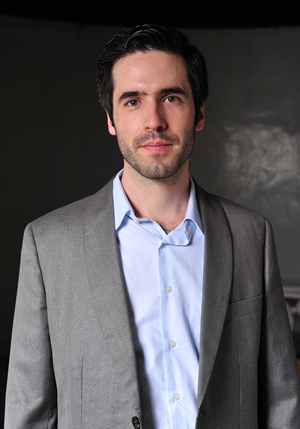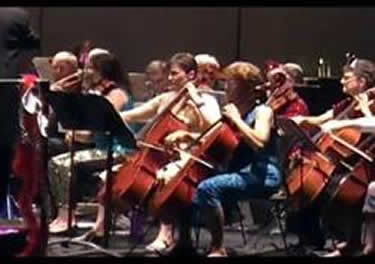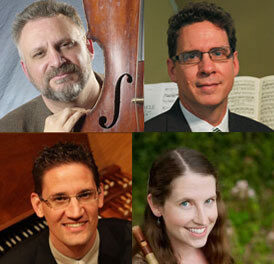The only headliner at the Clayton Piano Festival who’s not (as we say) from around here is Angelo Rondello, a Washington State native whose programming skills and command of the keyboard fully entitle him to inclusion alongside our homegrown stars, Jonathan Levin and Craig Ketter.
For the Festival’s second formal installment, Rondello offered a program he calls “Dreams and Nightmares” in the attractive auditorium of the Clayton Center. He introduced the works engagingly and effectively – indeed, his discussion of the concluding number, Ravel’s Gaspard de la nuit, further enriched with handouts of English translations of the Aloysius Bertrand poems on which its three sections are based, was among the finest expositions on the famous set this writer has heard – and never mind the playing, which was first-rate, too.
The subtitle for the evening was “From reverie of childhood and love to the darkest horrors composed for the piano.” That might be a tad extreme; although the second movement of the Ravel depicts a grim scene, it’s certainly no more off-putting than Berlioz’s Fantastic Symphony or more than a few requiem settings of the Dies Irae. For the most part, however, the billing and the music meshed well, and with outstanding overall effect.
Things got underway with Robert Schumann’s Scenes of Childhood, Op. 15, the heart and soul of which is the “endless” melody known in German as “Träumerei,” a piece so well known out of context it is often a jolt to hear it played with its companion works. Thanks to Rondello’s skill and the restraint with which he revealed the music, there was no jolt here – and the big “signature tune” fit admirably into the player’s sage view of the score.
A wonderful sonata by Scriabin – the Ninth, known as “Black Mass” – proved to be an exceptional experience as Rondello delivered it. The composer’s music is not often heard hereabouts, for reasons that are difficult to fathom. He significantly out-distanced Liszt, in my view, in terms of his music’s difficulty and complexity – this is true of his solo work and his orchestral pieces, too – and exposure is often the key to affection in the ears of listeners: remember that even well-known works like “Liebestraum” were at one point new!
Speaking of which, Liszt’s “Liebestraum” No. 3 began the second half of the concert. It’s so well known that even Spike Jones did a version of it, but Rondello played it straight, with restraint and dignity, casting the old work in the warm glow of new light.
And then at last came the Ravel, a work that, as played, was a true tour-de-force such as not often encountered.* This artist has clearly made the work his own, and his performance was memorable in several respects – for his accuracy and insight, for his fine clarity and balance, for the very nicely shaded dynamics. After a reading like that, no one can have been disappointed at the lack of an encore!
The festival continues with “An Evening in Vienna,” a dinner, concert, and dessert reception at the Wagner House, on February 14, and then the last of the formal recitals on February 15, with Craig Ketter and lecturer Randolph Foy, the Music Director of the Raleigh Civic Symphony. For details, see the sidebar.
Thus far, the programs and the playing have been exemplary – good enough to be noteworthy in far larger towns than Clayton. The remaining ones merit attendance and patronage, for festivals like this one don’t just happen, and they don’t survive without support.
*See and hear Rondello play the first part of Gaspard de la nuit – “Ondine” here.













